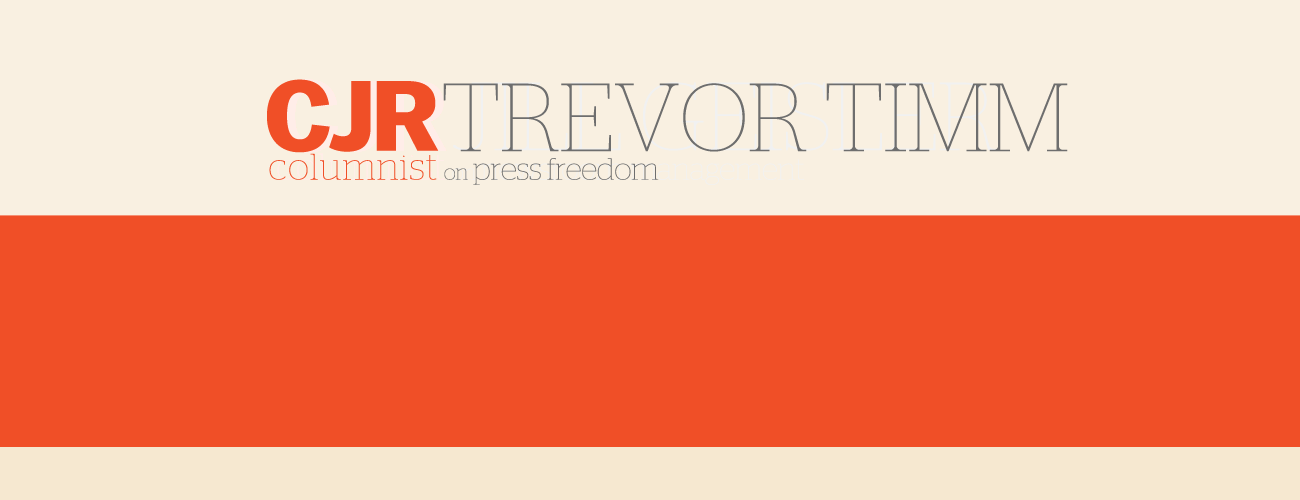Sign up for the daily CJR newsletter.
If you thought the bankruptcy of Gawker by billionaire Peter Thiel was a fluke, or that Gawker just got what it deserved, maybe you should think again. Other rich and powerful public figures already seem to be taking their cues from Thiel’s blueprint for destroying a news organization, and the entire media world could wind up paying the price.
In the few weeks since Gawker.com was forced to shut down thanks to Thiel, the same lawyers Thiel funded on behalf of Hulk Hogan and others have taken on two new rich and powerful clients: Melania Trump, the wife of the Republican nominee for president, and Roger Ailes, the disgraced former Fox News chief.
The Financial Times reported that Ailes is looking into a possible lawsuit against New York magazine and its investigative reporter Gabriel Sherman, who has received widespread acclaim for his thorough reporting on the myriad sexual harassment allegations against Ailes and Fox News. Melania Trump, meanwhile, has already sued the Daily Mail and an obscure blogger for $150 million over stories suggesting she once worked as a call girl.
Instead of worry, some journalists seemed to greet the news that Ailes may try to sue New York with anticipation. New York is different from Gawker, they say. It has deep-pocketed owners and insurance to cover legal costs (Gawker did, too, of course). Ailes will also open himself up to legal discovery if he files a suit, which could force even more newsworthy revelations. The Hogan case against Gawker was not a libel case, after all; it was about invasion of privacy. And besides, people have been suing news organizations for libel for decades and it hasn’t caused any systemic damage thanks to First Amendment protections.
This is a dangerously short-sighted view. If the Gawker precedent does, in fact, embolden millionaires and billionaires to sue news organizations more frequently, it could have disastrous long term effects–and in some cases, it may not matter how absurd the lawsuits are.
First, insurance doesn’t cover you forever. There is generally a cap on the amount in legal expenses or settlements that a policy will cover. While it’s certainly too early to tell if there will be a dramatic rise in lawsuits–especially by extremely wealthy plaintiffs–that prospect has the potential to significantly raise the cost of insurance in the future. And if things get too ugly, there’s no requirement for insurance companies to offer policies to media organizations (Gawker’s insurance company, Travelers Insurance, is now claiming it shouldn’t be on the hook for a second lawsuit in the Hulk Hogan case involving the leak of taped racist remarks by the former wrestling star).
Yes, news organizations have faced libel suits for decades (and luckily, our country has the world’s most robust protections against them). But past libel plaintiffs have traditionally been looking for a settlement and/or a retraction.
What if people like Ailes and Trump, like Thiel before them, aren’t after that? Hogan structured his lawsuit to do maximum damage to Gawker, rejecting settlement offers with the sole purpose of forcing the company to spend as much money as possible. If the likes of Ailes and Trump take that route–after all, they aren’t exactly hurting for money–libel insurance is not going to be a savior. Less wealthy news organizations may be forced into the same corner Gawker was without ever losing, and that’s not to speak of the damage such cases could do to nonprofit news organizations or independent freelance journalists.
Everyone seems to forget that, while the Hogan case itself was not a libel suit, the same lawyer subsequently brought multiple (absurd) lawsuits against Gawker that were based on allegations of defamation. If the Hogan suit didn’t work, there’s no telling how far those clients would have gone to slowly bleed Gawker to death, rather than decapitating it with one decisive blow.
To give you an idea of how expensive these lawsuits are, even for the winners, Mother Jones and its insurance company spent more than $2.5 million dollars defending themselves from a libel lawsuit from right-wing billionaire Frank VanderSloot–even though they won the case before it went to trial.
Journalists often start salivating at the thought of legal discovery in libel suits, given that the burden is on the accuser to prove the news organization lied, not for the news organization to prove it told the truth. But discovery can work both ways. Just ask Gawker how it went for them: the judge forced the company to allow Hogan’s lawyers to search its computers, and a bunch of embarrassing private chat messages were released to the public.
Then there are the costs we’ll never be able to see. How many media organizations will spike stories involving controversial figures just to avoid years of legal hassle and skyrocketing legal bills? How many journalists will just not pursue those stories in the first place, knowing the extra layers of bureaucracy they’ll have to fight through to get their stories published. And if there is a chance individual reporters are also on the hook, why would they risk their livelihood for a story to begin with?
It is true that all news organizations have truth on their side. If their reports are true (and sometimes even if they are not), ultimately they should be protected by the First Amendment. But Peter Thiel has shown that is not necessarily always the case, and we should all be worried that other multi-millionaires and billionaires might now be smelling blood.
Has America ever needed a media defender more than now? Help us by joining CJR today.







